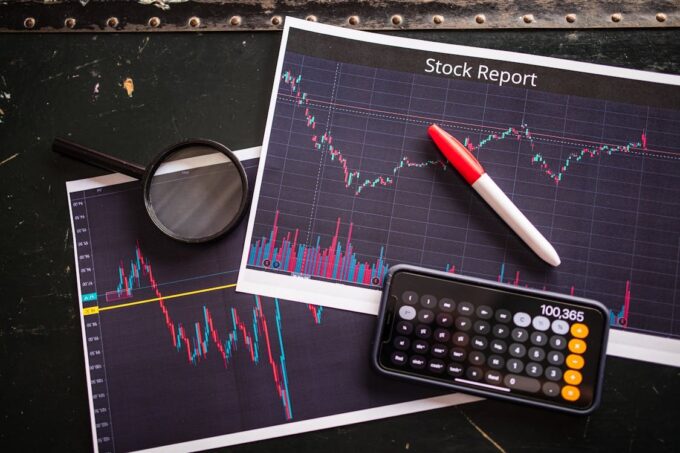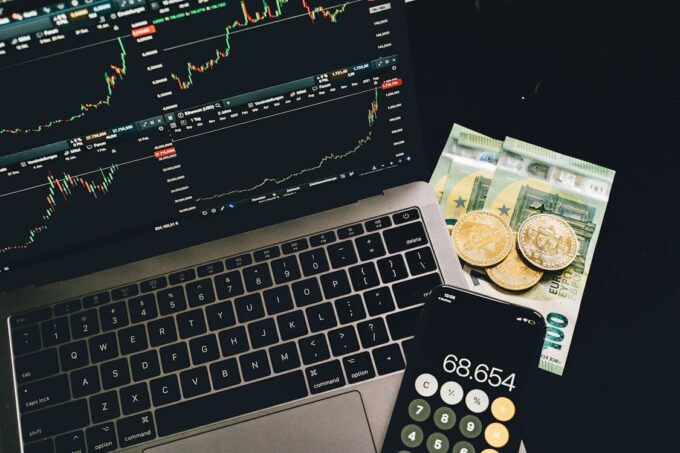If you’ve ever thought about turning your hobby into something that makes money, you’re not alone. We all dream about getting paid to do what we already love, right?
But when it comes to trading—whether it’s stocks, crypto, or any other market—it can feel a little intimidating to make that leap.
I’ve been there, staring at charts and feeling overwhelmed. But once I got into the groove, I realized it’s not as scary as it looks. Let’s break it down and see how your passion can turn into a profitable side hustle.
Why a Hobby Is the Perfect Starting Point

Hobbies are a unique thing—they already have your attention and interest. That’s a huge head start when it comes to trading. You’re not forcing yourself into something just because someone told you it’s a “smart” way to make extra cash. For example:
- Love collecting things? You might have a knack for spotting trends in niche markets.
- Into sports? You could have a great understanding of how fan bases move the needle on sports-related stocks or collectibles.
- Obsessed with tech? You’re probably ahead of the curve when it comes to new gadgets and software, which ties directly into tech stocks or even NFTs.
Automated trading systems offer a pathway to turn your hobby into a rewarding side hustle.
The cool thing about trading is you can match it to your interests. When you’re passionate about the subject, research feels less like work and more like exploring.
First Steps Without Overthinking It
Before you go “all in,” start small. Trust me, you don’t need thousands of dollars to make this work. Here’s a simple plan to get rolling:
1. Pick a Focus Area
Instead of trying to trade everything under the sun, pick one thing to focus on. Maybe it’s a specific stock sector, cryptocurrencies, or even sneaker resales. (Yes, sneaker trading counts as a market!) Start where you feel most comfortable.
2. Set a Budget
Only put in what you’re okay with losing. Seriously. Trading is a skill, and like any skill, you’ll stumble before you start winning consistently. Start with an amount that won’t make you lose sleep at night.
3. Use Practice Accounts
Many platforms have “paper trading” options. It’s basically Monopoly money, but it lets you test your strategies without risking real cash. Treat it like the real deal, though—practice only works if you take it seriously.
Building the Right Habits

Trading successfully isn’t about luck; it’s about creating good habits. Here are a few things that helped me stay on track:
Learn the Basics
I won’t sugarcoat it—there’s some groundwork to cover. Get familiar with concepts like buying, selling, charts, and risk management. There are plenty of free YouTube videos and guides to get you started. Don’t go for shortcuts; just focus on building a solid foundation.
Stick to a Plan
When you’re just starting, it’s tempting to jump on every “hot tip” you hear. But the truth is, most successful traders stick to a consistent plan. They know when to buy, when to sell, and, most importantly, when to sit out.
Start Tracking Everything
I cannot stress this enough—track your trades. Write down why you made a trade, how it went, and what you learned. A simple spreadsheet or even a notebook will work. Patterns will emerge over time, and you’ll start spotting what works for you.
Tools That Can Make Your Life Easier
When you’re new to trading, using the right tools can save you a ton of time and frustration. Here are some of my go-to resources:
- Trading Platforms: Apps like Robinhood, Webull, or Binance are great for beginners. They’re easy to navigate and often have free educational content.
- Charting Tools: Platforms like TradingView let you analyze trends in detail. Even the free version is packed with features.
- Community Forums: Reddit groups, Discord channels, or Twitter communities are goldmines for insights and tips. Just be careful not to follow advice blindly.
Managing the Risks (Without Freaking Out)
Let’s get real—trading isn’t a guaranteed money-maker. There will be losses. The key is managing them so they don’t wipe you out emotionally or financially. Here’s how I approach it:
1. Set Clear Limits
Decide in advance how much you’re willing to risk on each trade. A common rule of thumb is no more than 1–2% of your total account balance. This way, one bad trade won’t tank your entire portfolio.
2. Take a Breather
If you’re feeling stressed or frustrated, step away. Trading on emotions is like driving blindfolded—dangerous and almost always a bad idea.
3. Celebrate Small Wins
A small profit might not feel exciting at first, but every successful trade is progress. Those small wins add up over time.
When It’s Time to Scale Up

Once you’ve gained some confidence and consistency, you can start thinking about scaling up. This doesn’t mean throwing all your savings into trading—it’s about growing smarter. Here’s what worked for me:
Reinvest Your Profits
Instead of cashing out every penny, reinvest part of your gains to keep your portfolio growing.
Experiment (But Stay Smart)
Once you’re comfortable, start experimenting with new strategies. Maybe you try day trading for a small percentage of your portfolio or dip into a new market.
Keep Learning
Markets are always changing. Staying curious and continuing to learn will keep you ahead of the game. Books, podcasts, and webinars are great for keeping your skills sharp.
When to Call It a Win
Not every hobby needs to become a full-time career. For some people, trading stays as a profitable side hustle—and that’s perfectly fine. Others might find that it sparks a passion for finance or investing they didn’t know they had.
Either way, the goal isn’t to get rich overnight—it’s about creating something sustainable that adds value to your life.
So, if you’re looking for a way to make extra cash from something you already love, trading might just be your thing. Start small, stay consistent, and remember: even small steps forward are still progress.









